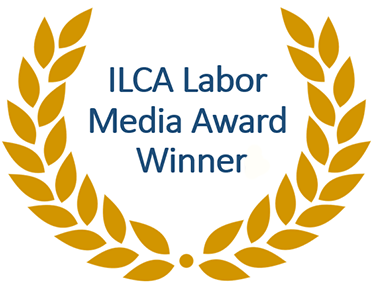

ILCA, First Place, Saul Miller Award for Collective Bargaining
After more than five months on the picket line, the workers at the Covered Bridge Potato Chip company in Hartland, New Brunswick, just won their first collective agreement. They held the line from the sub-zero depths of winter until the bright sun of spring shone down on their small eastern Canada town. In the words of striking worker Betty Demerchant, “It was a rough winter, but the weather is coming our way.”
Outlasting the boss who originally said he would “never ever, ever” allow his factory to become a union environment, and who became infamous after telling workers, “Screw you and your f*cking union,” the members of UFCW Local 1288P have achieved what their president Dan Smith is calling a “tremendous victory.”
The strike and boycott of Covered Bridge began January 5th after more than two years of failed negotiations between the company and workers over the terms of the first collective agreement. Though the workers had been in a legal strike position since June of 2015, their representatives remained at the bargaining table for months afterward in an attempt to hammer out a deal. After the employer, Ryan Albright, started retracting his earlier offers and substituting even worse proposals in their place, it became clear that the only option left was to strike.
At issue was a lack of seniority protections which often left experienced workers pushed down the list for shifts so that the company could schedule lower-paid new employees first. Stagnating salaries, which for some workers stayed at the minimum wage rate even after years on the job, were another main sticking point.
All down the list, the members of 1288P achieved gains on every one of the major goals they had set out in previous negotiations. The new three-year agreement, which was ratified with 71 percent support, includes provisions for job security and seniority protections. It also provides new allowances for boots and clothing required for work, as well as a pay increase for employees.
The strike was a hard-won victory though, with Albright bringing in scab labor to fill positions in the snack processing plant and seeking legal action in an attempt to dismantle the union. In February, Covered Bridge filed an application with New Brunswick courts claiming that it had collected the signatures of 24 employees, or “statements of desire,” expressing their wish to no longer be represented by the union.
The judge threw out the company’s case, clearly implying that the signatures might have been coerced. Justice Terrence Morrison rejected the application, saying that the New Brunswick Labour and Employment Board had been correct in its assessment that the statements of desire were not “the voluntary will of the bargaining unit employees.”
In his opinion, Morrison went on to write, “The Board concluded that the section of the signatures by the applicant [the company] was tainted by employee perceptions of employer influence.” Basically, the statements of desire were no good because the company had possibly collected them through either direct or implied coercion.
Carl Flanagan, the spokesperson for UFCW nationally, expressed hope at the time that the court’s decision would bring Covered Bridge back to the table to reach a settlement. Albright and the company’s management, however, still refused to bargain. The lack of legislation forcing employers to negotiate with unionized labor in New Brunswick (something most other Canadian provinces have in place), also contributed to the prolongation of the strike, according to the New Brunswick Federation of Labour.
The company returned to negotiations and concluded an agreement with workers, however, just days after the union’s boycott went national. On May 17th, activists from UFCW Canada, supported by affiliates of the Canadian Labour Congress (CLC) across the country, carried out a National Day of Action to bring its boycott of Covered Bridge chips to the wider public. Leaflets spotlighting the strike and the struggle of the workers at 1288P were distributed outside major grocers and retailers from coast to coast. U.S. retailer Aldi was also petitioned by unions on both sides of the border to halt its contracts with Covered Bridge.
Albright had originally said that the strike by 1288P members was just a “small bump in the road.” Five months later, it appears he underestimated the resolve of the workers in his plant. As Smith, the 1288P president said, “Through thick and thin and through one of the most frigid winters ever, they never lost faith and were ready to hold the line for as long as it took to get a fair first contract.”
New Brunswick Federation of Labour president Patrick Colford announced, “I firmly believe that the five months was well worth it…this was a great victory for all workers.”
At a time of austerity and after years of reversals for unions, the victory at Covered Bridge shows that united action can still deliver results even in an era when many have been eager to write the eulogy for organized labor. Solidarity ain’t dead yet.
Photo: UFCW Canada












Comments